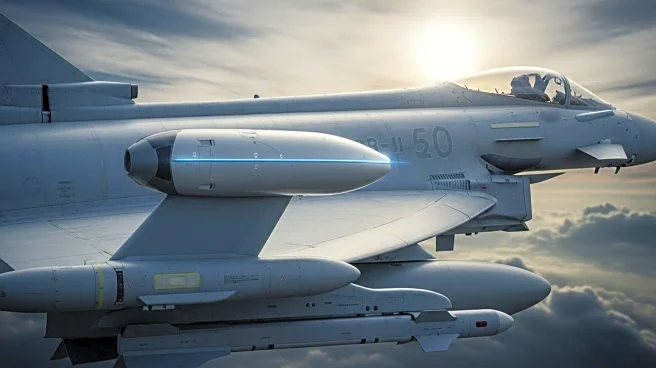What is the story about?
What's Happening?
BAE Systems is currently assessing a variety of weapon systems that could be integrated into the Eurofighter Typhoon to enhance its counter-unmanned aircraft system (C-UAS) capabilities. This development was disclosed during the Defence and Security Equipment International (DSEI) 2025 exhibition in London. Paul Smith, head of Typhoon Strategy Delivery at BAE Systems, highlighted the exploration of low-cost weapon solutions, including the AGR-20A Advanced Precision Kill Weapon System (APKWS) 70 mm guided rocket. The initiative aims to provide a cost-effective means to counteract the increasing threat posed by unmanned aerial systems (UAS) without resorting to expensive air-to-air missiles. The integration of these systems is both a technical and programmatic challenge, requiring prioritization against other national defense activities.
Why It's Important?
The integration of C-UAS capabilities into the Eurofighter Typhoon is significant as it addresses the growing threat of unmanned aerial systems, which are increasingly used in military and civilian contexts. By developing low-cost solutions, BAE Systems aims to provide its customer nations, including Germany, Italy, Spain, and the United Kingdom, with effective tools to counteract these threats without incurring high costs. This move could enhance the operational flexibility and cost-efficiency of the Eurofighter Typhoon, making it a more attractive option for countries looking to bolster their air defense capabilities against modern threats.
What's Next?
BAE Systems will continue feasibility studies and discussions with its customer nations to determine the best approach for integrating C-UAS capabilities into the Eurofighter Typhoon. The company will need to balance this integration with other defense priorities and activities requested by these nations. As the threat from unmanned systems grows, further developments and potential contracts for these capabilities could emerge, influencing defense strategies and procurement decisions in Europe and beyond.















